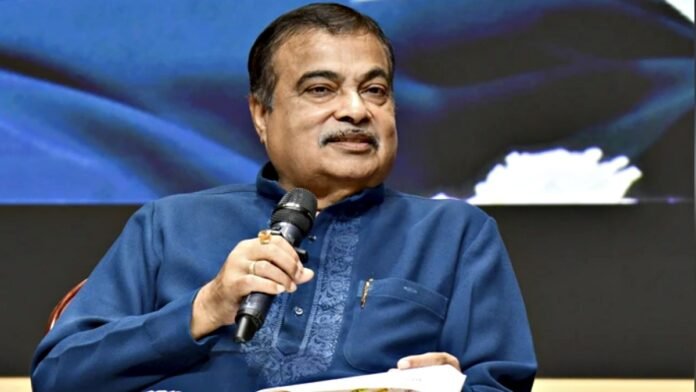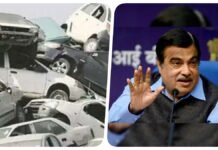
Key Points:
- Union Minister Nitin Gadkari claims social media attacks on 20% ethanol-blended petrol (E20) are part of a politically motivated paid campaign
- Gadkari asserts all allegations about E20 have been proven false and highlights strong opposition from the petroleum sector
- Petitions for GST relief to boost vehicle scrappage and promote cleaner vehicle adoption
- Cites research and industry validation: E20 is affordable, import-reducing, pollution-free, and fully indigenous
- E20 rollout faces pushback from petrol lobby and some users noting reduced fuel efficiency and engine wear concerns
New Delhi: At the Society of Automobile Manufacturers’ annual conference, Union Minister Nitin Gadkari confronted concerns surrounding E20 petrol fuel made by blending 20% ethanol with 80% conventional petrol by denouncing social media criticism as a “paid, politically motivated campaign.” Gadkari asserted that narratives about engine damage and inefficiency were driven by vested interests and proven baseless after technical review.
“Politics works the way your industry works. The campaign on social media was initiated for money, targeting me politically. There was no fact in it, and everything is clear now. Ethanol blending is an import alternative, affordable, pollution-free, and indigenous,” Gadkari said, reiterating government support for ethanol blending amid ongoing disinformation.
Petrol Lobby and End-User Criticism
Gadkari noted the petroleum sector’s strong opposition to E20, citing the influence of energy lobbies trying to derail clean fuel initiatives. “Every sector has a lobby, and the petrol lobby is very strong,” he observed during a Q&A session at the event.
He acknowledged that debates about E20 have grown, especially regarding vehicle performance and longevity. Some vehicle owners report reduced mileage and increased maintenance, though automotive industry organizations including the Automotive Research Association of India have conducted studies showing E20’s environmental and economic benefits when properly implemented.
Push for Clean Mobility and Industry Incentives
To further boost the adoption of cleaner vehicles, Gadkari urged the Finance Ministry to consider GST relief for consumers who buy new vehicles by scrapping old ones a policy he argued would advantage both the environment and the auto sector, paving the way for a greener and more modern vehicle fleet.
Gadkari emphasized that, with pollution posing a direct threat to public health (noting that ongoing pollution could reduce the life expectancy of Delhiites by up to 10 years), there was an urgent need for substantial reform in transportation fuels and vehicle renewal.
What is E20 Petrol and Why is It Significant?
E20 petrol is a blend of 80% regular petrol and 20% ethanol, created to curb carbon emissions, reduce fossil fuel imports, and encourage agricultural self-sufficiency by using domestically produced ethanol. The government projects E20 as a vital step toward a sustainable, energy-independent India.
While several users and automotive voices have pointed to concerns about fuel efficiency loss and potential engine wear, the government and industry studies continue to promote E20 as a balanced, long-term solution to both environmental and economic challenges.















































